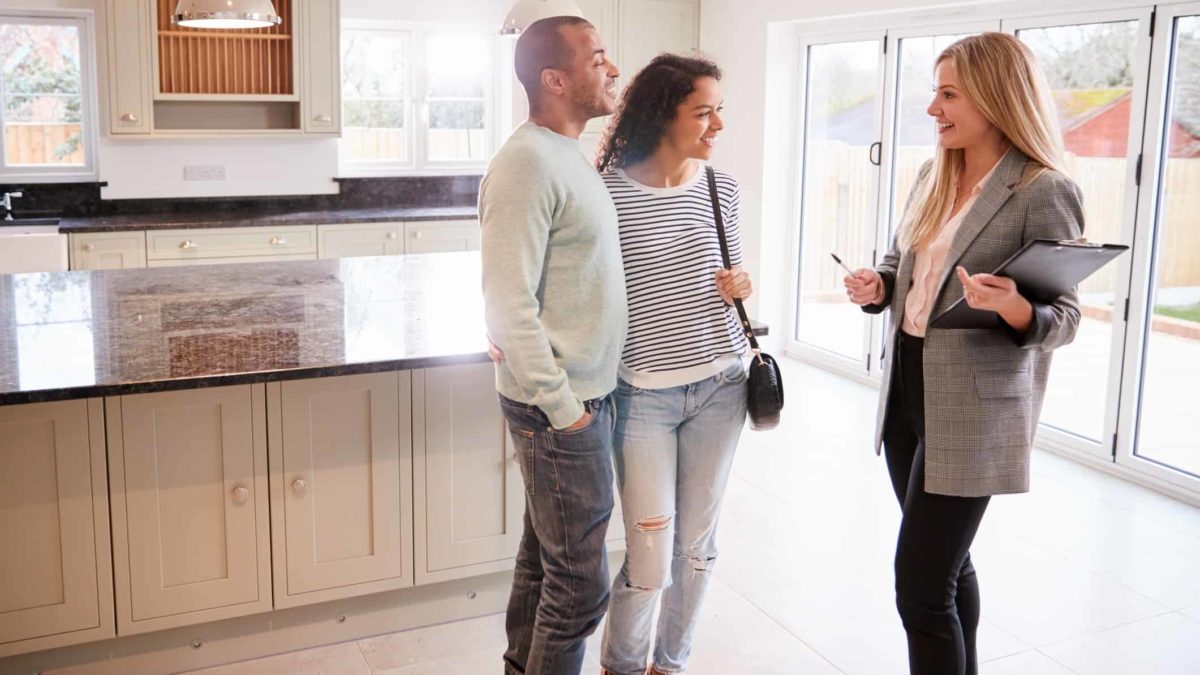Investing in ASX shares to build a deposit, rentvesting, and co-owning with parents or partners are among the inventive ways that young Australians are gaining a foothold on the property ladder.
Research from Westpac shows that 56% of first-time home buyers are planning to buy with a partner, compared to 40% three years ago.
Three in four young buyers say they are willing to compromise on location, up 9% from three years ago.
One in two first-time home buyers is considering rentvesting instead of owner-occupation, whereby they buy an affordable property to lease out and rent a home for themselves wherever they want to live.
Westpac managing director of mortgages Damien MacRae said first home buyers "are becoming more ruthless with their goals".
McRae said:
They understand it's a big task, but they are determined to break into the market and are willing to compromise to get there.
Creative pathways to home ownership
It's little wonder young people are compromising or getting creative to help them buy a home sooner.
For some, it feels like an impossible dream, particularly when it now takes 11.1 years to save a deposit for a typical house and 8.5 years for an apartment, according to an ANZ/CoreLogic affordability report.
It also takes 52.7% of a person's income to service an average home loan for houses and 40.5% for apartments, which is well above the mortgage stress threshold of 30%.
Co-ownership with partners or parents
In addition to buying with partners, many first home buyers are accepting various kinds of help from the Bank of Mum and Dad, including co-ownership.
Australian parents are acutely aware of the challenges of housing affordability for their children today.
In fact, a recent survey showed three in four Australians are planning to leave some of their superannuation behind as an inheritance for their loved ones.
One of the reasons is to help their kids into home ownership, as one respondent explained:
The cost of buying a house is beyond reach for younger people now. A little help from me when I die might help pay off their mortgage and allow them to retire at an appropriate age.
A separate investor survey shows helping their children or other family members financially is a key motivation for 33% of Gen Xers and 25% of baby boomers.
Investing in ASX shares to save the deposit
Saving a home deposit is a significant motivation for investing in ASX shares.
The 2023 ASX Australian Investor Study, which surveyed more than 5,500 Australians, found that buying a home to live in was the main goal of 16% of investors and 31% of intending investors.
An Australian Housing and Urban Research Institute (AHURI) study confirms the trend:
Anecdotally, some people have been turning to other strategies to accumulate wealth to achieve home ownership, including share investing and property investing.
The study found ASX shares were the most popular type of stock among young investors, with ASX exchange-traded funds (ETFs) coming in second.
By the way, online brokerage platform Selfwealth Ltd (ASX: SWF) reports the most popular ASX shares traded in April were BHP Group Ltd (ASX: BHP) and Woodside Energy Group Ltd (ASX: WDS).
The top ASX ETFs traded were Vanguard Australian Shares Index ETF (ASX: VAS) and Vanguard MSCI Index International Shares ETF (ASX: VGS).
Rentvesting
Rentvestors typically purchase their first property in an affordable suburb on the city outskirts and then lease it out, using the rental income to help them pay the holding costs and mortgage.
Meanwhile, they rent a home for themselves in a trendy inner-city location that provides the lifestyle they want.
They hope their investment property will deliver enough capital growth to fund the deposit on a home in a location they want to live in later down the track when they 'settle down'.
Rentvesting is a forced choice for some first-time buyers as it's the only way they can get finance.
It can be easier to get an investment loan than an owner-occupier loan because the rental income forms part of the banks' serviceability and income assessments.
The Australian Bureau of Statistics (ABS) began tracking rentvesting in 2019. Last year, 7,412 first-time buyers took our investment loans, according to ABS lending finance data.
Buying a first home with government help
Thousands of first home buyers are also taking up government help to buy their first residence.
Since May 2022, more than 110,000 Australians have taken advantage of the First Home Guarantee Scheme, which allows them to buy with a 5% deposit and avoid lenders' mortgage insurance.
The Federal Government is currently trying to get its new Help to Buy equity scheme through Parliament.
It says Help to Buy would allow 40,000 buyers to purchase a first home via a shared equity arrangement.
The government would provide up to 40% of the purchase price of new homes and 30% of the price of established homes.
The states and territories also offer help for first home buyers, including stamp duty exemptions and concessions and grants.
In November 2023, Queensland doubled its First Home Owner Grant to $30,000 for people buying or building a new home under $750,000 until 30 June 2025.








